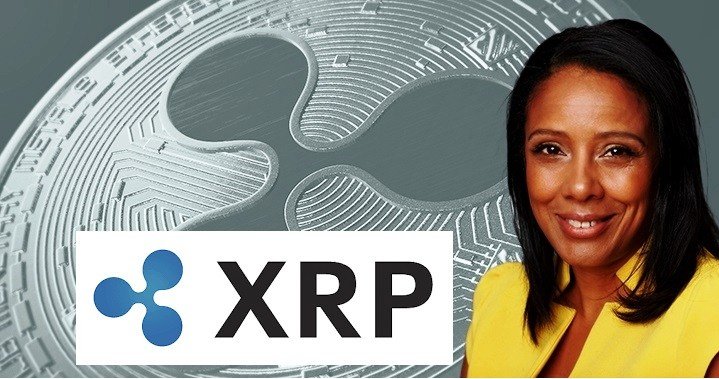Ripple is thrilled to have Kahina Van Dyke join our leadership team as the new senior vice president of business and corporate development. With more than 20 years of experience in banking and technology, Van Dyke will focus on driving new, strategic partnerships for Ripple across the global financial services industry.
Throughout her career, Van Dyke has proven that financial services and technology, when working together, can dramatically improve the lives of people, businesses and communities all around the world.
Her time leading global teams within the traditional financial services industry — most notably at Mastercard and Citibank — has afforded her insight into how sophisticated risk mitigation and compliance frameworks enable more reliable, timely services. Most recently, at Facebook, Van Dyke led the Global Financial Services team, and saw first hand the power of technology in connecting people around the world to financial services they never had before.
She also understands the importance of bringing leading brands together through partnerships. Van Dyke has forged relationships between Facebook and many notable companies — Citibank, PayPal, TD Ameritrade, Visa, Western Union and others — to give people in Asia, Europe, Middle East, Africa, and North America easier access to their bank accounts and the ability to send payments on the platform. She also led the partnership with MasterCard to offer micro-merchants in Africa the ability to enable digital payments through the social media platform. The culmination of these kinds of initiatives has led to better consumer experiences, emerging business models and new distribution channels across more than 50 countries.
We sat down with the newest Rippler to learn more:
Ripple: You’ve spent your career working to improve access to and delivery of financial services worldwide. What do you think is the most challenging issue in payments today?
Van Dyke: There is a reason you have only a handful of major money transfer operators in the world today. Without question, cross-border transactions is one of the most complex and multifaceted problem in payments.
In highly developed markets, and emerging markets, fragmentation in technology across financial services infrastructure slows down and prevents greater efficiency in cross-border money transfers.
The correspondent banking networks underpinning today’s global payments were built nearly 40 years ago and designed to accommodate large, corporate payments. It was an efficient tool for moving these types of payments in the 1960’s and 1970’s, but the reality is that most of these legacy platforms no longer meet the real-time needs of business today. Companies and individuals need to move small and large amounts of money faster and at lower cost, and they need a system that is more nimble and transparent than one built for the large the corporate payouts of decades past.
Further, ever-changing regulatory regimes need a way to talk to each other. There are more than 20,000 different payments corridors from Argentina to Zimbabwe, and each comes with unique set of requirements that must be addressed.
No doubt banks and other financial institutions have world-class regulatory, compliance and risk management capabilities. Companies like Facebook have improved access to services, digitized payment flows and made it quicker and easier for people to transact with each other domestically. Now we need a new global technology solution for international payments that offers interoperability with existing systems, connecting them and leveraging their value.
We are at the very tip of where this whole thing is going.
Ripple: Why did you join Ripple?
Van Dyke: Ripple provides a real solution for eliminating the friction in cross-border payments, and it’s delivering value to real customers right now.
Ripple’s approach is not just disruption for the sake of disruption. Ripple is built around establishing partnerships and applying technology to change an industry. I think that is a really powerful message.
It’s why over 100 financial institutions work with Ripple, and will continue to do so. It’s why Ripple has some of the world’s most notable partners, both traditional banks as well as newer fintech players.
In my career, I have found that the most powerful solutions are often discovered when partners recognize the unique value the other party offers. It is in this intersection — of value and a respect for each other’s unique capabilities — where the best partnerships are born.
Ripple also has an eye toward the future: the potential global impact that a faster, more efficient and cost-effective global payments network can have on people and businesses around the world.
Ripple offers a compelling opportunity to be a transformative force for good in the world of money movement. Together, with our partners, we can reduce friction and deliver better options for individuals, businesses and financial institutions. It’s an exciting time in the industry — and I feel very fortunate to be a part of creating the next generation of global payments.
Hi! I am a robot. I just upvoted you! I found similar content that readers might be interested in:
https://ripple.com/insights/welcomes-kahina-van-dyke/
very nice news
Ripple is a best cryptocurrency.
I use Ripple for my crypto transaction. According to me Ripple is great.
Posted using Partiko Android